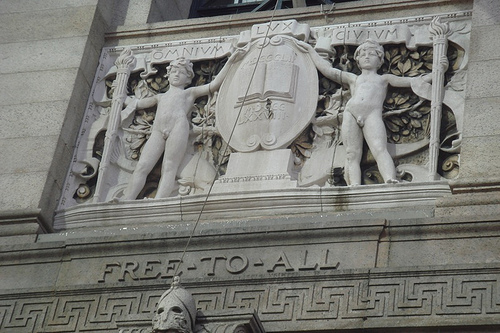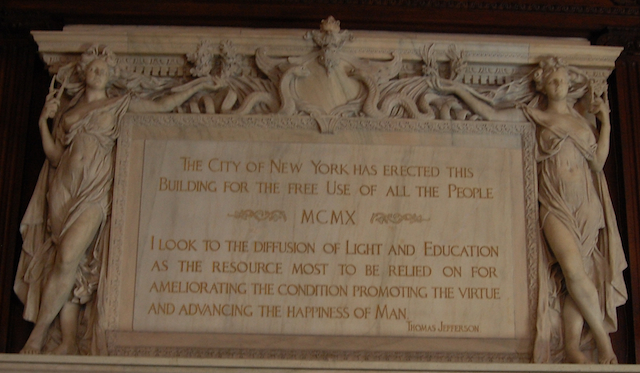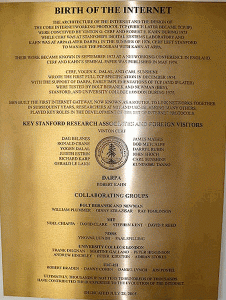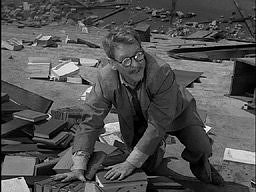“Free To All,†is chiseled in old, non-digitized stone over the main entrance to the Boston Public Library; and in the words of Thomas Jefferson, carved in un -photoshopped gilded letters on the mantle of the  super secret Trustees’ Room of the New York Public Library: “I look to the diffusion of light and education as the resource most to be relied on for ameliorating the condition promoting the virtue and advancing the happiness of man.â€
Carrying on Jeffferson’s torch of promoting the virtue and advancing the happiness of man through eduction is Google, by way of it’s bookish business endeavour melevontanly  called The Google Books LIbrary Project. While the public authorities were asleep at the wheel, Google employees were sureptitiously scanning books in the bowels of libraries everywhere. Outside the US, Google made sure only to scan books that are out of copyright, in the “public domain”. For example, with George Eliot dead and buried a good 130 years, it is now possible for anyone, anywhere, to view and download a digital copy of the 1871 first edition of Middlemarch in the collection at the Bodleian (“The Bod”) Library at Oxford. Within the US, Google took the liberty of  scanning both public domain and in-copyright works. With some sort of machiavellian”deal” worked out with a representative body of authors and publishers, you can assume the implications are going to boggle the mind. If all goes according to plan, Google’s end result will be the world’s largest library, a digital library, so vast it will dwarf all the national libraries of Europe and the Library of Congress itself. Moreover, Google will most likely become the world’s biggest book business—not a chain of stores like B. Dalton and Waldens – but an electronic supply service that could out-Amazon Amazon, which currently controls 90% of the digital books market. The settlement deal between Google and the undead authors has in effect handed Google a trove of intellectual copyright and the potential for the 14 year old startup to become the mother of all bookselling markets.
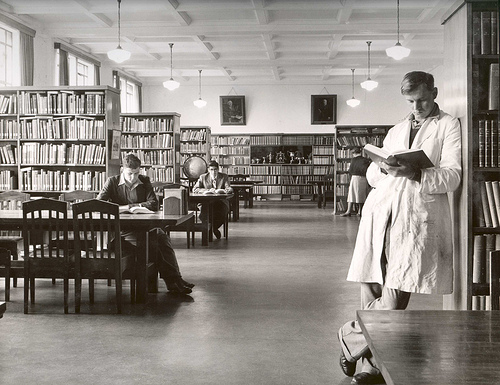
Meanwhile, over in Palo Alto -or Hewlett Packard –  Google has partnered with that gilded lily Stanford University  to create a sinister sounding program called  SULAIR. Librarians – facing extinction more rapidly than the sea turtles swimming for the lives of their species away from BP, armed with butterfly nets and a box of matches  –  are now futilely focusing on a bookless future where “more services” will be offered than a “mere repository of books”. I guess they haven’t seen the new super libraries spreading across Europe and the UK, which are hardly mere repository of books, but hipster friendly repository of books offering specialty coffee drinks to read with books, vending machines that spit out books and space pods in which to read books. In 2005, when the university realized it’s engineering library was running out space for its growing collection of 80,000 books, Stanford administrators decided to build a new library. But rather than creating more space for books, they chose to create less. Rather than building more bookshelves, they didn’t build more bookshelves. “We will gain expertise with handling truly large amounts of digital material and will be able to develop tools for adding features to the complete files that Google will make available to us as a result of this project” a university spokesperson pontificated. The SULAIR project was “approved by the Board of Trustees at the University, and has the enthusiastic support of the university administration”. I bet it does.
The Stanford University’s new bookless Engineering Library will open in August with 85% fewer books, as the aforementioned administrators opted to keep only 10,000 books, because the pesky books were just “eating up some space” in the library . Stanford “library director “Michael Keller prophesizes that eventually there will be NO books at all (duh). As this clearly addlepated sell-out librarian says  – and I quote while adding my own quotations – “As the “world turns more and more”, the items that appeared in “physical form” in previous decades and centuries are appearing in digital form”. Nicely put for a director of something at a University as venerable as Stanford (2 of the smartest people I know went there and thus my expectation is a sentence that doesn’t include “as the world turns more and more” ). “CLEARING the BOOKS out of the LIBRARY”, the school says, makes room and resources for “other endeavors”. Now that the periodical shelves at Stanford University’s Engineering Library are nearly bare, the students may roam around freely, browsing those periodicals from their laptops, ipads or “mobile devices”.
The  Cornell Engineering Library is removing their books, too in an initiative similar to Stanford’s but has been met with more resistance than the laid back fatcats in California. As part of the marginally ivy league, overrated, pricey university’s strategic planning efforts, a recent Engineering Library review emphasized how enhanced electronic collections will facilitate research and learning in the College of Engineering. So, all of the Engineering Library’s print materials will be boxed by librarians and carted out of Carpenter Hall by the end of next summer. Interestingly, an effort by racist shit for brains “college” Arizona State University to use Amazon’s Kindle to distribute electronic textbooks was met with a lawsuit because the device wasn’t fully accessible to the visually impaired. I am sure this is ASU’s backhanded way at not wanting to expend the (unavailable) mental energy to evolve, but maybe it’s result will be that our blind brothers and sisters can join forces with the beleagured librarians and take to the streets and put an end to this nonsense.
Today, a fine brass plaque commemorating the “Birth of the Internet” hangs – pompously and unfairly – at Stanford University.
As a Google spokesmoron with a seeming endless aphoristic trove says: “Looking forward, there will be no books at all”. Looking backward (atrabilious as I am by the future in all it’s forms), to the seventeenth and eighteenth centuries, when “the diffusion of light and education as the resource most to be relied on for ameliorating the condition promoting the virtue and advancing the happiness of man” was a” thing” rather than an inscription on a mantle in a room now used for socialite bacchanals and Carrie Bradshaw’s wedding, when fecundity and the faith in the power of knowledge of the Enlightenment were also “things”. There was a time in the not so distant past when there was a world wide web  – a world of ideas operated in a Republic of Letters, (or philosophes, hommes de lettres, or gens du monde), a limitless realm, free, transcending state lines, with no oversight, no boundaries, respectful of differences in language of culture, and no inequalities other than those determined by free time and talent. All persons were welcome to participate by exercising the two main attributes of citizenship, writing and reading. Writers formulated and scribbled their ideas, and readers judged them. All the ideas and judgments, critical questioning of traditional institutions, customs and morals, and all kinds of other filler junk spread in widening circles through written letters, in the golden era of epistolary exchange.  It was like an early  kind of peer review, where men would valuate each other’s methodologies through which they were able to produce scholarship of standards unquestionably unobtainable today. You can follow the Republic of Letters through the correspondence of the “philosophes” like Friedrich Grimm, pioneering mathematician Jean d’Alembert , Denis Diderot, David Hume, Voltaire, Rousseau, Franklin, Jefferson and Madison.  Jefferson and Madison - whose letters are the record of a political partnership that began around the Virginia Council table in the late 1770s and lasted almost half a century – exchanged nearly 1,250 letters, running the gamut from foppish notes (“Will you come and sit an hour before dinner to-day?”) to Madison’s seventeen-page letter debating all the issues of their day, like The Constitution of the United States of America. Important philosophical ideas and works such as The Treatise of Human Nature were pontificated on, then a foppish snit between Voltaire and Rousseau hilariously ends with Rousseau writing to Voltaire, “Monsieur,…I hate you.”
The letters of all these wigged, pantalooned thinkers crisscrossed Europe and America in a transatlantic information network, a circulation of knowledge, a world wide web of  discussions and goings-ons. Theirs was a kind of separate state, a republic governed by it’s own laws, totally made up but representing a kind of ideal, a Platonic city for intellectuals, except that it stretched across cities and continents without borders. 200 years later, philosophers, literary scholars, scientists, physicists, historians, critics, artists. philosophers, anthropologists and mystery writers no longer have to exist in separate worlds. The centuries old map is being redrawn everywhere, from university campuses to trailer parks, from mommy bloggers to  journalists in Iran, to states previously sentenced  (by Ronald Reagan) to eternal ignorance save for a Walden books or an under funded library, to countries where books are burned while women are stoned. Digitizing books from research libraries, providing full-text searching and making books in the public domain available on the Internet at no cost to the viewer is full of all kinds of previously unthinkable possibilities.
The impressive and meticulously curated digital archives at the Bodleian Library kept me busy for hours. It includes an awesome collection of  letters, diaries and journals relating to William Godwin, Mary Wollstonecraft, Mary Wollstonecraft Shelley, Percy Bysshe Shelley, and their circle. Their online resource was developed to maximize the research potential of its unique and highly valuable content through detailed cataloguing, high-quality images and sophisticated search functionality. It allows users complete access to hundreds of thousands of high-resolution, full-colour images accompanied by well written, descriptive metadata, searchable text (with four-way optical character recognition), and specially commissioned scholarly essays that respond to a diverse selection of materials in the Collection. I was particularly interested in one of their intended future developments of the online resource which is said to include cross-linking of items in the Crimes, murders and executions section of the Collection to external resources available online.
Just as letters emerged during the seventeenth century as a concept to describe the interaction between scholars across Europe and beyond,  grounded in a reality of close circles of interaction between intellectuals, which had always existed but which was now endowed with a renewed sense of collaboration and participation within this community without barriers of statehood or creed, the interwebs could move beyond the retardation of facebook and twitter and usher in some kind of  new enlightenment. The forces are ineluctable, inevitable as the obliteration of every telephone booth and telephone, but in an attempt to be less concupiscent and childishly nostalgic, let’s look on the bright side!! Perhaps it won’t destroy us after all, but save us all! Maybe the eighteenth-century Republic of Letters and the fucking internet will meet in the middle and morph into something like a new enlightenment (let’s not get carried away), by subordinating private interests to the public good, and by taking inspiration from the early republic in order to create a Digital Republic of Learning, accessible to anyone, anywhere who is interested, thanks to “open access†repositories of digitized articles available free of charge. You know, what Al Gore envisioned when he invented the internet in the first place.
Anyway, hopefully the Big G is not burning books Borders-style, but rather putting them into some giant World Repository like Fort Knox, or like the Library of Congress, except in a nuke-proof fireproof vault underground where a retina-display-iBook-like-thing-device is needed to enter the catacombs so we can gaze upon the ancient and mysterious artifacts. And don’t we need to have information that exists in the actual physical world? Â Because what if the entire internet protocol suite (I don’t now what that is) goes down? Â And what if there was one person per facility, a bespeckled person manning an encyclopedia set , while users retreat to pods with computers to find answers to the things that those first two things didn’t know the answer to? That would be weird. Â There are two more potentially devastating results of this transition. First is the end of the myth of the sexy librarian before it even gained traction and second is the reality of the suddenly dangerously limited choice of nerd hook-up options, Â further limiting smart-people breeding grounds just when we need them most. Â No one wants to procreate in sterile, open-air iPad banks. Perhaps adding sperm banks to those new digital libraries would be something Google could look into.
The World-Wide Web (W3) was not invented for Facebook, TMZ or Twitter or this stupid blog, but to be a pool of human knowledge, that  old “information super highway” (copyright Al Gore, 1990something), which would allow collaborators in remote sites to share information and ideas, a long awaited opportunity for the narrow boxes that held “learning” captive during the entire 20th century. Learning isn’t confined to a particular building, a single location or moment anymore. Although they may be no substitute for dark, whispery, clubby reading rooms, Open Content Alliance, the Open Knowledge Commons, OpenCourseWare, Managed Learning Enviironments, the Internet Archive, and openly amateur enterprises like Wikipedia and blogs might reflect that the democratization of knowledge is now actually at our fingertips, and maybe some semblance of the enlightenment ideal can come to life in reality. Engagement, interest, reflection and ingenuity are, I guess, resulting in some kind of “learning” for  both young, otherwise-would- be-illiterate- violent-videogaming-idiots and the old, otherwise-would-be-set-int-their-ways-and-berating-others-with-their “facts”-and -the-prices-of-meals- old -coots alike. Because what the internets does succeed in doing is making you feel alive and connected. Until you realize, like I did one late night on Twitter, that  you are just like your dad, in the basement, putting the call out for friends on his ham radio.

